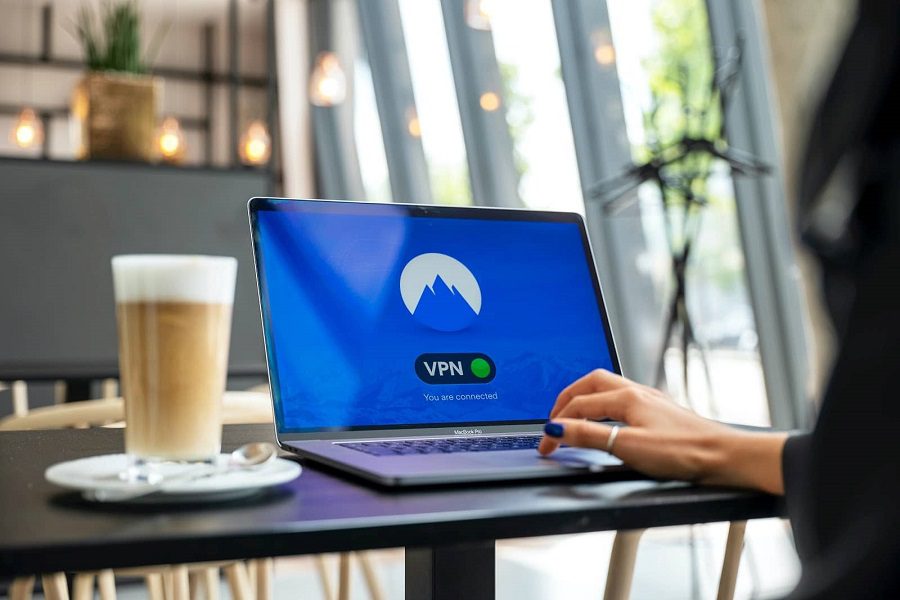Anatomy of a Secure, Remote Workplace
Virtual Private Networks (VPNs) helps in creating a shielded, secure way of accessing the internet/intranet. A computer may be connected remotely using Remote Desktop Protocol (RDP).
A VPN creates secure tracks for users, allowing them access to data for their work. VPNs are used to connect to other private networks using the internet, enabling users to:
- Access private data remotely in a protected way
- Remote access of computer systems
- Work from anywhere(remotely)
The world has seen the dynamics change arbitrarily and especially in the cyber world in the past year due to the ongoing pandemic known as COVID-19. With almost any and every place turned into a remote workplace due to restrictions, there have been concerns regarding cyber-security & access to the internet /intranet using methods that might be rendered unsafe.
While there are hundreds of VPNs that you can find online, not all of them are safe to use. Make sure you stay safe and anonymous and get a trusted VPN. If you are a Canadian like me you would not want to miss out the VPNs they provide you for utmost security while working remotely with added benefits of streaming, torrenting, gaming and privacy. Checkout CanadaVPNs and hook yourself up with the best VPNs with their detail analysis. You can also find valuable information regarding VPNs selection and online privacy specially for Canadians.
Many users fail to see the danger posed by attacks which may include phishing attacks, distributed denial of service, remote desktop account attacks to name a few. This is where a VPN comes into play.

Defining the Gravity of a VPN
The main ingredients that a VPN contains are Privacy & Security. A VPN ensures a safe and secure environment for accession to data & network. It is encryption between user and service. Provision of network scalability, escape from bandwidth/data throttling and security of private information are some tasks a VPN performs efficiently. With all the pros mentioned above, a VPN can have effects that might hinder remote work.
These liabilities are:
- Inability to use VPN continuously for remote work
- Uncertainty regarding encryption strength of VPN
- VPNs might not be able to monitor vendor activity on a network
- Authentication risks for desktop sharing
- Fake VPN service providers might cause real-time issues
- Intruder access to user network and server
Remote Working Trends
Remote work basically refers to working outside of a traditional office without actually having the need to walk or drive to the office. You could work from home while sipping on your coffee or just lying in that cozy bed of yours you never wanted to leave early in the morning.
This paradigm shift has been made possible due to the advancements in technology thus enabling easier lives. Remote workers may set their routines that suit the best of their performance and energy delivery. People tend to work remotely because it gives them a flexible lifestyle, better health, increased productivity, cost-savings, etc. In short, remote work has become the new normal.

Trends in Great White North
Canada has shifted to remote working trends as fast as any other country. The country has seen a rise in the numbers of remote working users since COVID-19. 59% of the population now works remotely as compared to the 82% prior to the pandemic.
Surveys conducted show the regional differences between the population wanting to continue remote work and the other side that is comfortable with returning to their workplaces. Stats from Ontario & Quebec have seen shifts towards remote work while those from Alberta (47%) & Atlantic (45%) show comfort with returning to normal.
While the work and life balance is a challenge, 46% of the Canadians reveal increased productivity under remote conditions. 61% of the younger generation aged 18-34 prefers remote work in comparison to the 43% aged 35 and above.
Effects of VPN on Remote Trends in Canada
With VPN services 100% legal in Canada, the country saw a shift towards ensuring a secure environment while working remotely using VPNs. Business VPNs have seen enormous growth in their business owing to this pandemic. The usage in Canada has skyrocketed by a whopping 206%.
The federal government limited access to its networks to use time and increase capacity to meet user requirements. Meanwhile, the employees were instructed to use VPNs or cloud services as per their convenience from their homes using private or public networks. Shared Services Canada which is the government IT company monitored user activity online.
Users in the country were asked to telework as much as possible and save files locally. Instructions also listed enabling airplane mode while the network is not in use to avoid attacks by hackers on data that may be confidential. The departments have been made responsible for capacity allotted and auto-time on idle connections.
Some of the top VPNs for Canada include:
- ExpressVPN
- NordVPN
- Surfshark
- CyberGhost
- PrivateVPN
Canada is a member of the Five Eyes Alliance which puts you under the radar of intelligence agencies that can easily collect information and data. So, if you feel an invasion of your privacy in any of the ways, you might want to use a VPN in Canada.
Conclusion
The effects of remote work in Canada are very similar to the rest of the world. With advanced technology, easier remote-working has been enabled. The life-cycle of people goes easier while working remotely allowing them to discharge their energies effectively in a routine suited best to them.
But all this ease should not be dealt with carelessly as it may cause more harm than fun. Users need to be highly oblivious and responsive to any data/privacy invasion. The highest protection measures should be in place at all times in order to avoid any loss to users or an organization.
The world in this moment is remote and it might be the new normal but it is not going to continue in eternity since the pandemic is not permanent and the world will return to its normal habitat.



